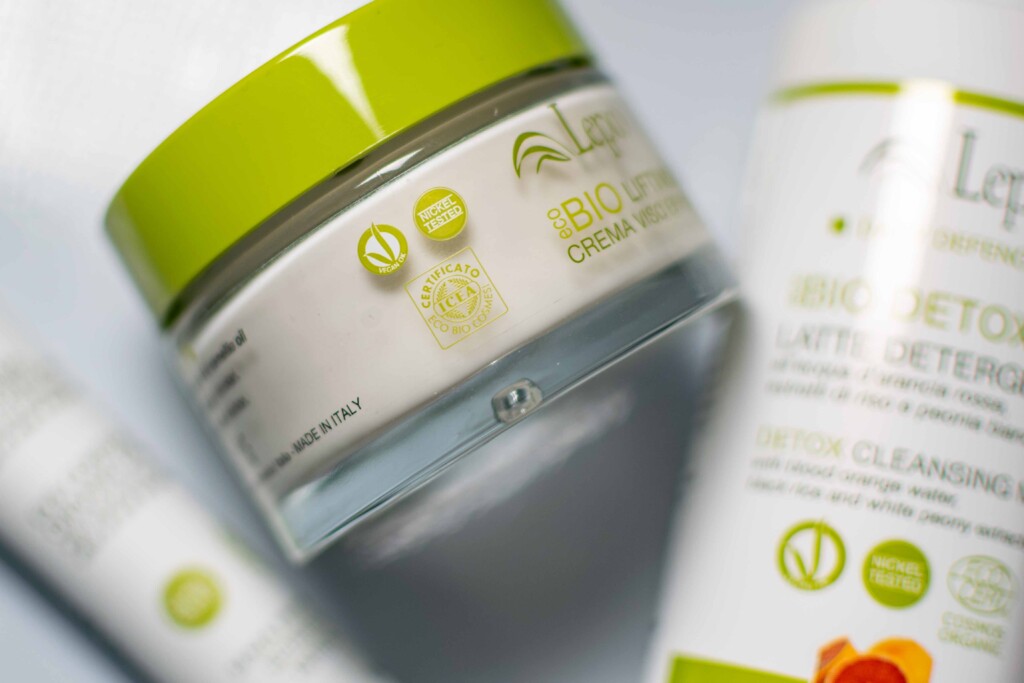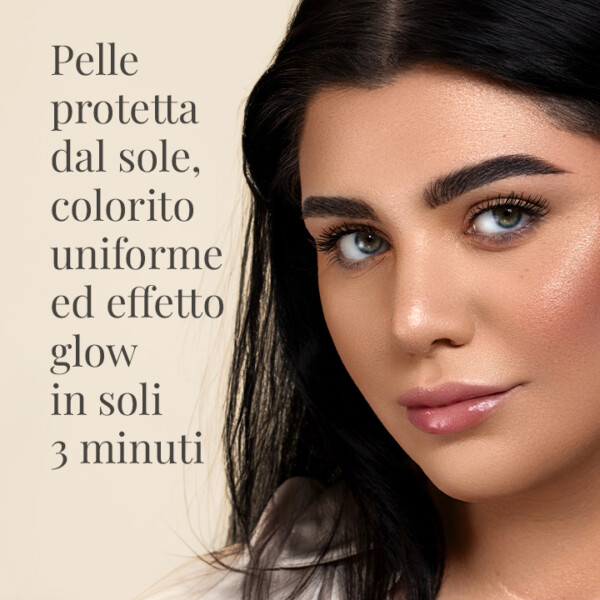
Eyelash treatments with natural ingredients for more and more intense eyes.
Eyelash treatments with natural ingredients for more and more intense eyes. In order to enhance our eyes and enhance them, it is necessary to take care of the
More and more people are attracted to the world of natural cosmetic products, which, as a guarantee
to the consumer, carry more and more different stamps corresponding to certifications or
symbols that can cause confusion.
What are the main cosmetic certifications and what to pay attention to in order to be
sure of buying a truly natural cosmetic?


Certification Cosmos, which stands for Cosmetic Organic Standard, is the single European standard dealing with natural and organic products. It was established in 2009 and brings together the main certifying bodies such as Icea in italy, EcoCert e Cosmebio in France, BDIH in Germany, and Soil Association in the United Kingdom. The COSMOS specification is based on adherence to standards and rules during production so that it is as much as possible with a low environmental impact and that the ingredients used are sourced from ingredients natural e organic well established, respecting the health of humans, animals and the environment.
Certification releases the standard Cosmos Natural and Cosmos Organic:
In addition, Cosmos certification also includes a system of verification and control of raw materials and non-organic ingredients ("Non Organic Ingredients") authorized for the formulation of Cosmos-branded products.
Source: Cosmos Standard pg 15 par 7.1

In Italy, ICEA, the Institute for Ethical and Environmental Certification, is the body that deals with natural and organic products, and is also recognized by other European countries. ICEA certifies cosmetic products "formulated on the basis of environmental sustainability criteria and checks companies that respect a cruelty-free company policy."


Established in France in 1991 Ecocert is one of the most recognized bodies in the world with standards accepted in more than 24 countries. It issues the "Ecological and Organic Cosmetics" standard when the percentage of natural ingredients is at least 95 percent. However, the remaining 5 percent is passed inspection, as is also the use of: minerals, organic acids, salts and other raw materials.
Ecocert does not allow the use of synthetic perfumes, silicones, synthetic preservatives, Sls, Sles and other ethoxylates, glycols, mineral oils and other petroleum products or other synthetic ingredients, as well as excluding raw materials tested on animals.
With the "organic cosmetics" label, the requirements are somewhat less stringent: at least 50 percent of the ingredients in a given product must come from organic farming.

The Consortium for the Control of Organic Products (CCPB) is an Italian certification and control body for food and cosmetic products that certifies organic and environmentally sustainable products.
To be defined as organic, a cosmetic product must contain a minimum of 95 percent organic ingredients, and petroleum derivatives, paraffins, formaldehyde, and synthetic dyes may not be used in its production.

VEGANOK is the standard that certifies that products are free of animal ingredients.
The VEGANOK standard has a very strict specification with extremely strict rules and involves the sum of two types of procedure. On the one hand, the issuing body carries out rigorous checks for each individual product to be certified, and on the other hand, the company that affixes the VEGANOK mark takes criminal responsibility for self-declaring compliance with the strict VEGANOK standard.
The VEGANOK standard also covers the packaging of the product to ensure that there is no trace of animal-derived elements in any of its components, from formula to packaging. A company that decides to adhere to the VEGANOK standard also operates in accordance with the European UNI EN ISO 14021 standard on labeling and product information.
Source: standard Vegan ok


Lepo, in addition to adhering to the standards listed above, also adds the "Natural Ingredients" label on many of its products.
This choice stems from the desire for immediate communication with the consumer, who is clearly informed about the contents of the formulation. "Natural Ingredients" is used for products that contain a percentage of natural or naturally derived ingredients greater than or equal to 90 percent* of the total formula and testifies to the company's choice to use the highest possible percentage of natural (plant and mineral) ingredients in the formulation of cosmetic products.
The wording Natural Ingredients also indicates that there are no such substances considered blacklisted in the formula:
They are also allowed as colorants in Lepo formulas only:
The Symbol Natural Ingredients does not appear in certified organic cosmetics.
* Nail polishes >= 75%.
** Having ascertained the impossibility or extreme difficulty of using processable, safe and stable natural raw materials under the conditions of cosmetic formulation use, we also use synthetic dyes in the minimum necessary quantity to obtain special colors otherwise impossible to achieve.
*** Bee products are allowed.

Eyelash treatments with natural ingredients for more and more intense eyes. In order to enhance our eyes and enhance them, it is necessary to take care of the

Sun-protected skin, even complexionand irresistible glow effect in just 3 minutes With the arrival of warm weather, it's time to embrace a fresh make-up

From Lepo, all the tricks for masculine make-up that is there, but not seen The conception of make-up as an exclusively feminine tool is now

The Made in Italy brand that has been caring for beauty for over 30 years with natural and organic make-up and skincare products that are safe for the skin and in harmony with the planet.
Tel. +39 030 872510
Email: [email protected]
Via Golgi 10 25064
Gussago (BS) Italy
V.A.T. 00636480980
C.F. 01546790179

Credit card transactions are secured through the highest Security Standards via verified banking circuit and encrypted SSL protocol.